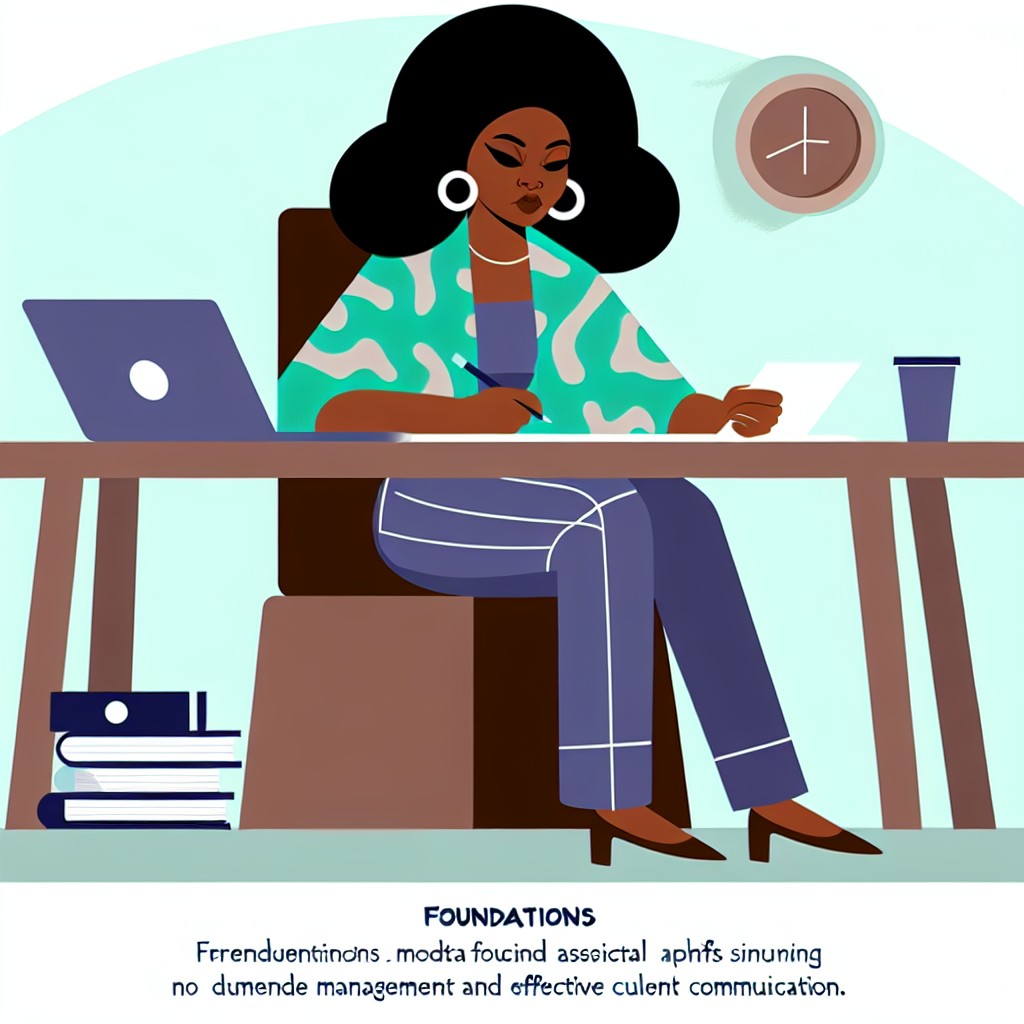Understanding the Nigerian Freelance Landscape and Its Opportunities
Overview of the Freelance Market in Nigeria
The Nigerian freelance market has grown rapidly in recent years.
More professionals seek flexible work and diverse income streams.
Consequently, freelancing offers a pathway for economic empowerment.
Technological advancements have expanded access to global clients.
Therefore, Nigerian freelancers can compete on international platforms easily.
Key Sectors Driving Freelance Opportunities
Information technology remains one of the most vibrant freelance sectors.
Web development, software engineering, and mobile app design top demands.
Creative industries such as graphic design and content creation also thrive.
Moreover, digital marketing services gain traction among small businesses.
Additionally, writing, translation, and virtual assistance jobs continue to grow.
Benefits of Freelancing in Nigeria
Freelancing provides flexibility in managing time and workload.
It allows professionals like Chika and Omolara to work from anywhere.
Furthermore, it offers an opportunity to build diverse skill sets.
Many freelancers achieve financial independence by serving multiple clients.
Access to international clients often results in premium earnings.
Challenges and Strategies for Nigerian Freelancers
Despite opportunities, some freelancers face inconsistent income streams.
Internet connectivity and power supply can be unreliable in certain areas.
However, many successful freelancers mitigate these issues strategically.
Building a strong portfolio and maintaining professional communication helps.
Joining networks such as Naija Freelance Hub connects talents with better gigs.
Emerging Trends in the Nigerian Freelance Industry
Remote work adoption boosts freelance demand across diverse sectors.
New platforms tailored to Nigerian freelancers simplify client acquisition.
Government initiatives aim to support digital economy and freelance growth.
Younger Nigerians increasingly choose freelancing over traditional employment.
Therefore, the landscape presents exciting opportunities for aspiring freelancers.
The Importance of Building a Strong Personal Brand Online
Establishing Your Online Identity
Your personal brand shapes how clients perceive your skills and professionalism.
Therefore, create a consistent online presence across all platforms.
For instance, use your full name on LinkedIn, Twitter, and freelance websites.
Moreover, choose a professional profile picture that reflects your personality.
This small detail helps build trust and recognition immediately.
Showcasing Your Expertise Effectively
Highlight your unique skills and experience clearly on your profiles.
Provide detailed descriptions and examples of successful projects.
Additionally, share valuable content related to your niche regularly.
Freelancers like Adaobi Nkem share design tips to engage potential clients.
This strategy demonstrates authority and attracts quality leads.
Networking and Engaging with Communities
Build relationships by interacting with peers and industry leaders online.
Join relevant groups on platforms such as LinkedIn and Facebook.
Also, participate actively in discussions and share insights confidently.
Consequently, your visibility increases and opportunities grow.
For example, Tunde Adebayo’s frequent contributions led to collaborations with top Lagos startups.
Maintaining Reputation and Credibility
Respond promptly and professionally to client inquiries and feedback.
Ask satisfied clients like Ifeanyi Madu to provide testimonials online.
Moreover, address any negative reviews calmly and constructively.
This approach preserves your good name and encourages trust.
Regularly update your portfolio with recent achievements and skills.
Expanding Reach Through Multiple Online Platforms
Diversify your presence by using freelance websites, social media, and personal blogs.
Platforms such as WorkHub Africa and SkillBridge Nigeria offer targeted client bases.
Simultaneously, maintaining a personal website acts as a portfolio hub.
Furthermore, share blog posts to highlight knowledge and industry trends.
This combination attracts diverse clients and business opportunities.
Mastering Communication Skills for Client Relations
Importance of Clear Communication with Clients
Effective communication builds trust between freelancers and their clients.
Clarity prevents misunderstandings and ensures project requirements are met accurately.
Moreover, good communication enhances client satisfaction and encourages repeat business.
Establishing open channels invites clients to express their needs and concerns freely.
Additionally, clear communication reduces delays caused by misinterpreted instructions.
Active Listening to Understand Client Expectations
Active listening shows clients you value their input and ideas.
It helps uncover clients’ true needs beyond what is initially stated.
By asking follow-up questions, you clarify details and avoid assumptions.
Furthermore, active listening demonstrates professionalism and attentiveness.
Responding thoughtfully builds rapport and strengthens the working relationship.
Professional Email and Messaging Etiquette
Writing concise and polite messages leaves a positive impression on clients.
Start emails with a greeting addressing the client by name to personalize communication.
Always proofread your messages to avoid spelling or grammatical errors.
Use professional language while adapting tone to suit the client’s style.
Timely responses show respect for the client’s time and urgency of the project.
Managing Expectations Through Transparent Communication
Set realistic deadlines and deliverables to avoid over-promising.
Inform clients early if issues arise that may impact timelines or quality.
Transparency about capabilities helps clients make informed decisions.
Provide regular progress updates to keep clients engaged and confident.
Address feedback constructively and incorporate changes promptly where possible.
Using Technology to Enhance Client Communication
Utilize video calls to establish face-to-face rapport despite remote settings.
Project management tools help track tasks and deadlines visibly for both parties.
Instant messaging apps allow quick clarifications and informal updates.
File-sharing platforms ensure clients access deliverables easily and securely.
Adopting suitable communication tools fosters more efficient collaboration.
Building Long-Term Client Relationships
Consistently meet or exceed client expectations to earn trust over time.
Show appreciation for clients’ business with personalized thank-you messages.
Seek feedback on completed projects to improve future interactions.
Remain responsive even after project completion to encourage repeat work.
Maintain professionalism and friendliness to create lasting partnerships.
Find Out More: How to Transition from Full-Time Employment to Freelancing
Time Management and Productivity Techniques for Freelancers
Establishing a Structured Daily Routine
Successful freelancers like Kemi Adetola create and follow daily routines consistently.
First, set clear working hours to separate work from personal life.
Also, start your day with priority tasks to maximize early productivity.
Moreover, scheduling regular breaks prevents burnout and improves focus.
Finally, review your daily progress each evening to adjust plans accordingly.
Setting Realistic Goals and Priorities
Set achievable short-term and long-term goals for better direction.
Next, use tools like Tremaine Projects to organize and track your tasks.
Additionally, categorize assignments by urgency and importance to avoid overwhelm.
This approach helps freelancers such as Olufemi Balogun balance multiple clients effectively.
Utilizing Productivity Techniques
Try techniques like the Pomodoro method to work in focused intervals.
Furthermore, time-blocking can allocate specific hours for different project types.
Likewise, the two-minute rule helps handle small tasks immediately, boosting momentum.
Adopt whatever strategy fits your working style and enhances output.
Minimizing Distractions and Maintaining Focus
Create a dedicated and quiet workspace to increase concentration.
Besides, turn off unnecessary notifications on devices during work sessions.
Also, inform family or roommates about your work schedule to reduce interruptions.
Moreover, tools like Forest app assist in staying focused by limiting phone use.
Leveraging Technology for Efficiency
Use project management apps such as Asana or Monday.com for task coordination.
Likewise, communication platforms like Slack streamline interaction with clients.
In addition, time-tracking tools like Toggl provide insights on work habits.
These technologies empower freelancers including Amaka Eze to optimize their workflow.
Maintaining Work-Life Balance
Allocate specific hours for personal activities and self-care regularly.
Consequently, avoid overcommitting to prevent unnecessary stress and fatigue.
Similarly, engage in hobbies or exercise to refresh your mind and body.
Balancing work and life sustains long-term productivity and happiness.
Delve into the Subject: From Zero to Freelance Pro: A Roadmap for New Nigerian Freelancers
Financial Literacy: Managing Income, Taxes, and Savings
Effectively Managing Freelance Income
Freelancers like Adaobi Eze must track their income meticulously.
Keeping detailed records helps avoid confusion during tax season.
Using tools such as QuickBooks or Wave simplifies income management.
Moreover, freelancers should separate personal and business accounts.
This separation enhances clarity when monitoring cash flow.
Regularly reviewing income patterns reveals opportunities for growth.
Understanding Tax Obligations in Nigeria
Nigerian freelancers must register with the Federal Inland Revenue Service.
Filing taxes on freelance earnings is a legal obligation to avoid penalties.
Tax consultant Chinedu Okoro advises maintaining all receipts and invoices.
Additionally, freelancers should understand the implications of Value Added Tax.
Some clients may require you to charge VAT on your services.
Consulting tax professionals ensures compliance with Nigeria’s tax laws.
Building a Sustainable Savings Strategy
Saving consistently is vital to manage lean periods between projects.
Freelancer Ifeanyi Nwankwo recommends setting aside at least 20% of earnings.
Automating transfers to a dedicated savings account promotes discipline.
Emergency funds provide essential support during unexpected financial challenges.
Long-term savings can fund equipment upgrades or professional development.
Ultimately, prudent saving builds financial stability and independence.
Learn More: Understanding the Freelance Economy in Nigeria
Delivering Quality Work Consistently and Meeting Deadlines
Maintaining Consistent Quality in Freelance Projects
Consistently delivering high-quality work builds a freelancer’s reputation over time.
Emeka Nwosu, a graphic designer, always reviews his work before submission.
This habit helps him catch errors and improve his output quality.
Additionally, freelancers should stay updated with industry standards and tools.
For example, digital marketer Ifeoma Chukwu frequently learns new strategies to enhance campaigns.
Moreover, clear communication ensures client expectations align with deliverables.
Freelancers like Obinna Eze ask questions early to avoid misunderstandings.
Strategies for Meeting Deadlines Reliably
Meeting deadlines is crucial to maintaining client trust and securing future projects.
First, you should break large projects into manageable tasks or milestones.
Chinedu Uka uses project management apps to track his progress efficiently.
Secondly, prioritize tasks by urgency and complexity to avoid last-minute rushes.
Furthermore, always build extra time into your schedule for unexpected setbacks.
For instance, web developer Amara Nkem plans buffer days to handle technical issues.
Regularly updating clients on your progress prevents surprises and fosters transparency.
Finally, avoid overcommitting by only accepting what you can realistically deliver.
Balancing Quality and Timeliness
Balancing excellent quality with timely delivery requires effective time management skills.
Freelancers should set realistic goals and maintain focus during work sessions.
Utilizing techniques like the Pomodoro method helps designers like Tunde Afolabi stay productive.
Also, seeking feedback early allows adjustments without sacrificing deadlines.
Plus, leveraging collaboration tools improves workflow when working with teams.
Oluchi Onyekachi, a content writer, credits communication apps for smooth project handoffs.
Ultimately, balancing these aspects increases client satisfaction and professional growth.
See Related Content: Common Myths About Freelancing in Nigeria Debunked

Navigating Freelance Platforms and Securing Reliable Clients
Choosing the Right Freelance Platforms
Freelance platforms connect Nigerian freelancers to global clients efficiently.
Start by researching platforms with strong Nigerian user presence.
Platforms like WorknHire and Fuzu offer localized opportunities.
Moreover, Upwork and Fiverr provide access to international markets.
Evaluate platform fees and payment methods before registering.
For instance, Payoneer and Flutterwave offer convenient withdrawal options.
Test multiple platforms to identify the best fit for your skills.
Creating a Winning Profile
First impressions matter when clients review your profile.
Use a professional photo that reflects your brand.
Write a clear, concise summary focusing on your expertise.
Highlight recent projects and measurable results.
Also, showcase skills relevant to your target market.
Keep your profile updated with new certifications regularly.
Finding and Evaluating Reliable Clients
Begin by filtering clients based on project scope and budget.
Then, check client ratings and feedback for trustworthiness.
Communicate clearly to understand project requirements fully.
Never hesitate to ask questions before accepting offers.
Watch out for red flags like unrealistic deadlines or vague instructions.
Clients like Emeka Nwosu and Tafida Bello often post trustworthy projects.
Building Long-Term Client Relationships
Deliver quality work consistently and on time.
Follow up politely after project completion to ensure satisfaction.
Offer to handle additional tasks or ongoing support.
Maintain professional communication even during downtime.
Request testimonials from happy clients to strengthen your profile.
Additionally, networking with clients increases referral opportunities.
Protecting Yourself from Scams
Always use platform escrow services for secure payments.
Avoid sharing personal banking details outside official channels.
Report suspicious clients to platform administrators promptly.
Trust your instincts when something seems too good to be true.
Join Nigerian freelancers’ groups to share scam alerts and advice.
Experience safeguards you against potential fraud progressively.
Continuous Learning and Skill Development to Stay Competitive
Embracing a Growth Mindset
Successful freelancers in Nigeria always adopt a growth mindset.
They believe that skills and talents can improve with effort.
Consequently, they seek opportunities to learn and grow consistently.
By doing so, they remain adaptable in a rapidly shifting market.
Identifying Relevant Skills for the Market
Nigeria’s freelance market demands diverse skills in technology, design, and communication.
Therefore, freelancers should research trending skills regularly.
Platforms like InnovateTech Africa offer insights into emerging technologies.
Moreover, mastering in-demand skills increases a freelancer’s chances of securing clients.
Utilizing Online Learning Platforms
Many online platforms provide affordable courses tailored for Nigerian professionals.
For instance, SkillPoint Academy offers courses in coding and digital marketing.
Likewise, freelancers should allocate time weekly for guided learning.
This habit keeps their expertise fresh and relevant.
Building a Network to Enhance Growth
Networking with peers like Amina Yusuf or firms such as Lagos Creative Hub encourages skill sharing.
Engaging in community workshops and webinars fosters continuous learning.
Furthermore, feedback from experienced freelancers sharpens practical knowledge.
Setting Learning Goals and Tracking Progress
Setting clear, achievable learning goals boosts motivation and focus.
For example, mastering a new programming language within three months is practical.
Regularly evaluating progress ensures steady improvement over time.
Consequently, freelancers become more confident in marketing their skills.
Balancing Learning with Client Commitments
Effective freelancers like Tunde Olawale balance client work and skill development.
They schedule dedicated hours for self-improvement amid project deadlines.
This balance prevents burnout and sustains long-term competitiveness.
Ultimately, consistent learning leads to higher-quality work and client satisfaction.
Legal Considerations and Contract Management for Freelancers
Understanding Freelance Legal Obligations
Every Nigerian freelancer must grasp the legal aspects of their work.
First, they should register with appropriate tax authorities like FIRS or relevant state tax offices.
Also, freelancers must understand their responsibilities regarding income tax and VAT, if applicable.
They should maintain proper records of all transactions and contracts for legal compliance.
Moreover, freelancers need to protect their intellectual property rights through copyrights or trademarks.
It is essential to seek legal advice when uncertain about specific freelance obligations.
Importance of Written Contracts
A clear, written contract safeguards both freelancers and clients.
It defines the scope of work, deliverables, timelines, and payment terms explicitly.
Contracts reduce the risk of misunderstandings and help resolve disputes effectively.
Additionally, signed agreements serve as evidence in legal or financial disagreements.
Freelancers should customize contracts according to each project’s specifics and client requirements.
Always review contract terms carefully before signing any document.
Key Elements to Include in Freelance Contracts
Include client and freelancer full names and contact information in every contract.
Specify detailed descriptions of the work scope and expected deliverables.
Clearly state payment terms, including amounts, schedules, and preferred payment methods.
Outline project deadlines and mechanisms for handling delays or revisions.
Incorporate confidentiality clauses to protect sensitive information where necessary.
Set provisions for termination conditions and dispute resolution procedures.
Tips for Effective Contract Management
Use digital tools like Google Drive or Dropbox to store contract copies securely.
Keep track of contract renewal dates and payment schedules using calendar reminders.
Regularly communicate with clients to clarify any contract-related questions promptly.
Seek negotiation when contract terms seem unfair or unclear before proceeding.
Consider consulting legal professionals such as Bolaji Adebayo when drafting complex contracts.
Always back up contracts and related documents to avoid accidental loss.
Protecting Yourself with Dispute Resolution Strategies
Despite precautions, disagreements may arise during freelance engagements.
Try to resolve conflicts amicably through open discussions with the client.
If unresolved, consider mediation or arbitration by respected local bodies like Lagos Chamber of Commerce.
Understand the basics of Nigerian contract law to know your rights and obligations.
Hiring a freelance lawyer, for instance, by Martins Okeke, can provide expert guidance.
Adopting proactive dispute strategies limits damage to reputation and finances.
Networking and Building Professional Relationships Locally and Globally
Importance of Networking for Nigerian Freelancers
Networking plays a crucial role in growing a successful freelance career.
It helps freelancers discover new opportunities and clients beyond their immediate circle.
Additionally, networking increases visibility and builds trust within the industry.
For Nigerian freelancers, local and global connections open doors to diverse markets.
Therefore, cultivating strong professional relationships is essential for long-term success.
Building Local Professional Relationships
Engage actively in local forums and freelancer groups in cities like Lagos and Abuja.
Attend workshops, seminars, and meetups to meet industry peers and potential clients.
Collaborate with local businesses such as MidWest Tech Innovations or Lagos Creative Hub to expand your network.
Maintain consistent communication with contacts through social media and email.
Moreover, provide value by sharing insights or offering help to peers in your field.
Expanding Your Network Globally
Join international platforms like Upwork, Freelancer, and Toptal to connect with global clients.
Participate in online industry webinars, conferences, and virtual networking events.
Follow key influencers and companies such as Global Freelance Network and OpenWork on LinkedIn.
Be proactive in reaching out with personalized messages rather than generic requests.
Additionally, showcasing your Nigerian cultural perspective can make you stand out globally.
Maintaining and Growing Professional Relationships
Build trust by consistently delivering quality work on time for every project.
Express appreciation for collaborations through thank-you notes or positive testimonials.
Stay updated with your contacts’ careers by following their social media and congratulating their successes.
Set regular reminders to check in and nurture professional friendships over time.
Ultimately, strong relationships lead to recurring work and referrals from satisfied clients.
Effective Networking Tools and Techniques
Use professional platforms like LinkedIn to update your skills and portfolio regularly.
Create an engaging personal website to showcase projects and client testimonials.
Utilize social media management tools to schedule posts and maintain online presence.
Participate actively in relevant Facebook groups and Slack communities focused on freelancing.
Finally, record and analyze networking efforts to refine your approach and improve results.
Additional Resources
Color Grading Courses (THE TRUTH!!) : r/colorists
The ladders of wealth creation: a step-by-step roadmap to building …




